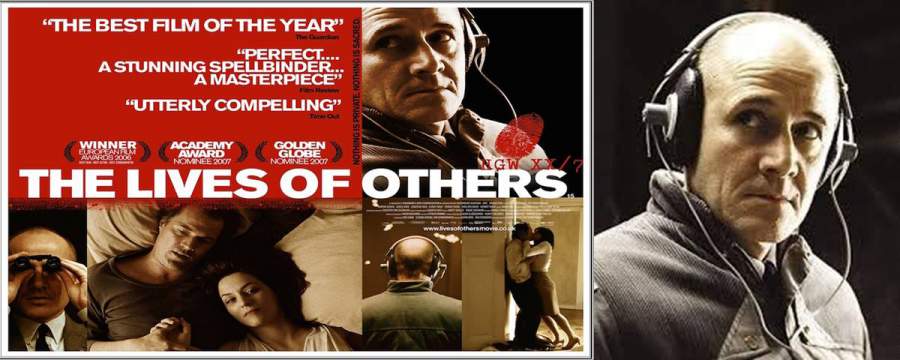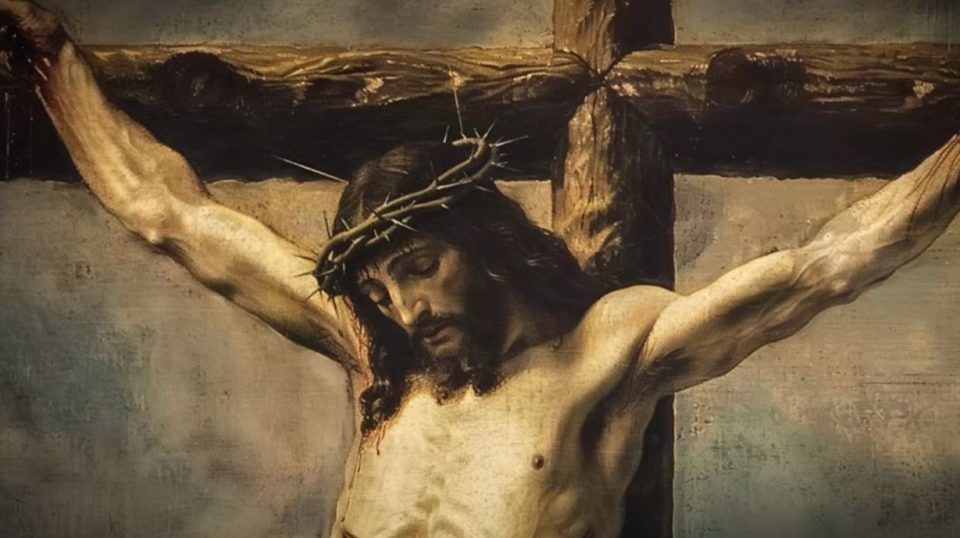The Nunes Memo Shows America Slouching Toward an East German Future

Bishop Schneider: ‘Discernment’ Now Means to ‘Allow to Sin’
February 5, 2018
German Cardinal Marx Endorses Blessing Ceremonies for Same-Sex Couples
February 5, 2018
By John Zmirak, a Senior Editor, The Stream, February 4, 2018
 If you want to know all the insAdd New and outs of the war between the Deep State and Donald Trump’s voters, go read Victor Davis Hanson in National Review. A military historian, he unpacks the battle skirmish by skirmish. A few of his high points:
If you want to know all the insAdd New and outs of the war between the Deep State and Donald Trump’s voters, go read Victor Davis Hanson in National Review. A military historian, he unpacks the battle skirmish by skirmish. A few of his high points:
Obama appointees in the FBI and Department of Justice who supported Hillary Clinton appear to have tried to harm Donald Trump’s campaign. Why? A mixture of partisan fervor, Trump-induced panic, and the wish to win brownie points with their likely future boss. Certainly most thought she would win, and draw a dark veil over their underground activities. To target the Trump campaign, they used a dubiously Constitutional weapon designed for use on terrorists and spies: A FISA warrant, issued in secret, rubber-stamped by judges without appeal or public scrutiny. Their pretext? The claim that the Trump campaign was colluding with the government of Russia. That’s not a crime. Nor are we at war with Russia. But in theory it could open the door to Russian espionage. You know, down the road. If Trump won. I guess.
Watergate Was a Civics Class by Comparison
How did these partisans atop the FBI and DOJ support this claim? What could they tell one of the (unnamed) judges in the secret court to win such a massive invasion of a U.S. citizen’s privacy? According to Hanson, “The basis of the requests was an anti-Trump dossier that the FBI and DOJ had purchased from a private concern.” He means the infamous Steele Dossier, which even the FBI admitted it considered a pile of unsubstantiated and scurrilous gossip. Opposition research, of the kind that every campaign worth its salt sweeps up and rarely uses. Stuff on the order of the false claims that Ted Cruz had slept with a long list of women not his wife.
Except that the FBI didn’t admit that to the judge. He must have thought they were relying on actual U.S. intel, so he dutifully rubber-stamped their request. Oh yes, and the Feds threw in a story from Yahoo News, which was based on leaks from … the author of the dossier, Mr. Steele. As Hanson summarizes:
Apparently, no FBI or DOJ officials informed the court over the duration of these various requests that a) the dossier was paid for by the Clinton campaign, b) the FBI in turn apparently paid to obtain it, c) supporting news stories used to substantiate the dossier were the result of deliberately leaking the same document to seed stories in media organizations, or d) a DOJ official both met the author of the dossier and informed the FBI that he was a biased source — but either did not inform other DOJ and FBI officials that his own spouse was a collaborator who worked on the dossier, or such knowledge was known to DOJ and FBI officials but not passed on at some point to the FISA judge, apparently because the court might not have otherwise approved of the request or might have acted to revoke prior requests.
The Government Trying to Rig an ElectionHave you got that? It stinks to high heaven. It’s a clear attempt by a government to swing the outcome of a U.S. election all right. But not Russia’s government. Our own. Not by slipping dirt to a political campaign or taking out Facebook ads (which Russia may have done or tried to do). No, by wiretapping campaign officials and passing the information up the chain to President Obama. Who surely would never, ever have shared such information with the woman he hoped would succeed him.
No, that would never happen in America. There’s no way that Obama would have squelched an FBI probe into her illegal broadcast of classified information on unsecured servers, right? Say, by sending the Attorney General to meet with her husband on a tarmac somewhere?
Hanson’s piece unpacks all you need to know about what happened. Let me explain why it matters. And for that, let’s go to the movies. The award-winning 2006 film The Lives of Others shows us what happens when law enforcement gets politicized.
Silencing Dissidents in the USA
Yes, it’s set in East Germany, so the secret police have greater power to shanghai citizens than they do here. But the essentials aren’t that different. Any government can abuse authority and crush its citizens like bugs, if they aren’t vigilant. Look at how Southern segregationists abused civil rights activists. As I wrote last year:
For instance, the state of Alabama demanded a complete list of the members of the NAACP, which backed a civil rights boycott of segregated buses — fully aware that, if these people were exposed, they might be subject to bombings or assassination attempts.
Read Kimberley Strassel of The Wall Street Journal. Her chilling book The Intimidation Game explains that historic outrage — and copycat abuses of citizens by Obama’s IRS and Department of Justice. From my review:
Strassel tells the personal stories of a dozen or so Americans who were civic-minded enough to organize small, local groups to speak out on issues of moral and political concern. These topics ranged from racial segregation in the 1960s to voter fraud, deficit spending, climate activism, and public employee unions in the 2010s. Strassel shows how these citizens were subjected by government agencies to campaigns of harassment, unwarranted tax audits, interrogation, false prosecution, and in some cases armed raids on their private homes that put their families’ lives in danger.
Armed raids like the pre-dawn assault on the home of Paul Manafort, former Trump campaign advisor, in search of documents he’d already agreed to turn over. Just to cite something that Special Counsel Robert Mueller must have personally ordered.
Corruption Grows in DarknessIn The Lives of Others, we see secret policemen home in on a harmless couple, playwright Georg Dreyman and his girlfriend, actress Christa-Maria Sieland. They put the couple under non-stop surveillance, and bug their home. They get authorization to do this in secret (just like the FISA court) citing a threat to “national security” (ditto). But here’s the twist: The two aren’t even dissidents. Dreyman may be the last intellectual in East Germany who still holds out hope for that bankrupt system. Christa is completely apolitical, just ambitious. Their dissident friends are cowed and beaten down from the latest round of vicious crackdowns.
So why target them? Because a Communist Party honcho — as fat, ruthless and repulsive as Harvey Weinstein — wants Christa-Maria for himself. And he wants George out of the way. So he orders his underlings to find something, anything, to justify locking him up.
An American Stasi?
That’s the kind of corruption that can set in, like fungus, in dark, unaccountable corners of secret organizations. Of politicized secret police, like the East German Stasi — and, we now know, Obama’s FBI and DOJ. Things are worse, by far, in one-party states — as the U.S. will soon become, if we don’t stop the Democrats from importing millions of new immigrant voters.
But think about that. This is how far Democrats were willing to go in a country where Republicans are still (barely) competitive. Where our press is nominally free. They must have known how completely most media were in the bag for them. Witness the fact that The Washington Post, which is now basking in the glory of exposing the Pentagon Papers (thanks to Spielberg’s movie, The Post), opposed the release of the Nunes memo. It has spent every subsequent news cycle trying to obscure or minimize its import. So has most of the press.
If the “DREAMERs” and their chain-migrant cousins turn Texas and Florida blue, and we have Democratic presidents for the next several decades, how much worse will it get?
We can look to deep-blue California for a preview. There Kamala Harris tried to imprison pro-life journalists for probing Planned Parenthood. Now she’s a U.S. senator, whom some think should run for president. What would President Harris’ FBI look like? A lot more like the Stasi than we would like to admit.
_______________________




